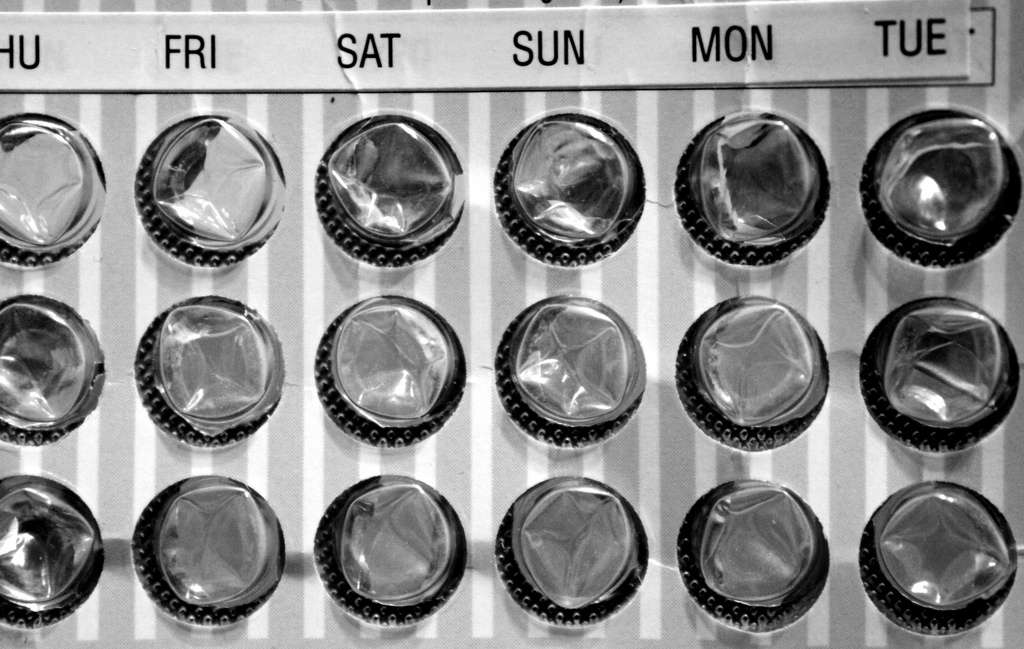Tennessee Latest State to Consider Over-the-Counter Birth Control
States are moving to make contraception more accessible, with the charge being led by Republican men.


More encouraging signs from the states on the over-the-counter contraception front. Tennessee state Sen. Steven Dickerson (R-Nashville) introduced legislation Wednesday to allow birth control pills and the contraceptive patch to be accessible to anyone 18 and older without a prescription.
"Requiring a physician's prescription can be an obstacle to access and effective use, especially among low-income women," Dickerson said. "One of the barriers for women is the fact they need to go to a doctor's office to get a prescription. Often, this burdens them with missing work or takes them away from their family."
Dickerson, who is also an anesthesiologist, is one of many in the medical profession who think women should be able to access certain forms of birth control without a doctor's permission slip. The American College of Obstetricians and Gynecologists backs the idea, pointing out in a 2012 statement that "access and cost issues are common reasons why women either do not use contraception or have gaps in use," and this is a large driver of unintended pregnancy. "Weighing the risks versus the benefits based on currently available data, [oral contraceptives] should be available over-the-counter," ACOG concluded. "Women should self-screen for most contraindications to [oral contraceptives] using checklists."
Oddly enough, the biggest supporters of over-the-counter contraception on the political front have been conservatives. Last May, Republican Sens. Cory Gardner (Colorado) and Kelly Ayotte (NH) co-sponsored a bill to spur action on over-the-counter oral contraception—though it didn't go anywhere. The subject was also a big one during Gardner's 2014 Senate campaign, a response to allegations from Democratic opponent Sen. John Udall that Gardner was opposed to contraception and women more generally.
That whole season was a topsy-turvy one for birth control, with liberals and women's rights groups—those most traditionally in favor of expanding access to contraception—denouncing over-the-counter birth control proposals as attacks on reproductive liberty. Many viewed the idea as an attack on Obamacare's contraception mandate, which requires employer-sponsored health insurance plans to offer a wide range of "free" contraception to enrollees. In a particularly ugly period of partisan hackery, Democrats denounced all efforts to decouple birth control from doctor's visits as part of the Republican "war on women."
But with a little distance from the 2014 midterm elections and the Supreme Court battle over the contraception mandate, liberal furor over giving women more options has died down, and some state legislation to this effect has been able to proceed.
In both Oregon and California, patients can now walk into a pharmacy with no prescription and walk out with birth control pills. While the pill is not technically prescription-free, both states allow pharmacists to write such prescriptions after a simple screening—a system the Tennessee measure might also rely on. While details of the legislation are still being worked out, Sen. Dickerson said it might include providing pharmacists with a "risks list" with which to screen patients before doling out the drugs.
I'd prefer to see birth control pills sold alongside aspirin and acid-reflux meds, but proposals like these are a major, major step in the right direction—and the majority of Americans agree. The 2014 Reason-Rupe poll found 70 percent of Americans favor legalizing over-the-counter birth control pills and patches. Support was high among both men and women, and also showed bipartisan appeal, with 65 percent of self-identified Republicans, 69 percent of Democrats, and 74 percent of political independents in favor.


Show Comments (67)